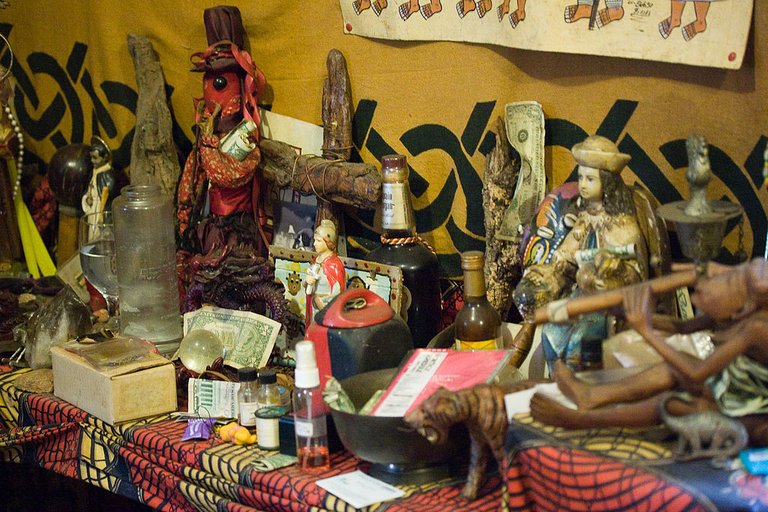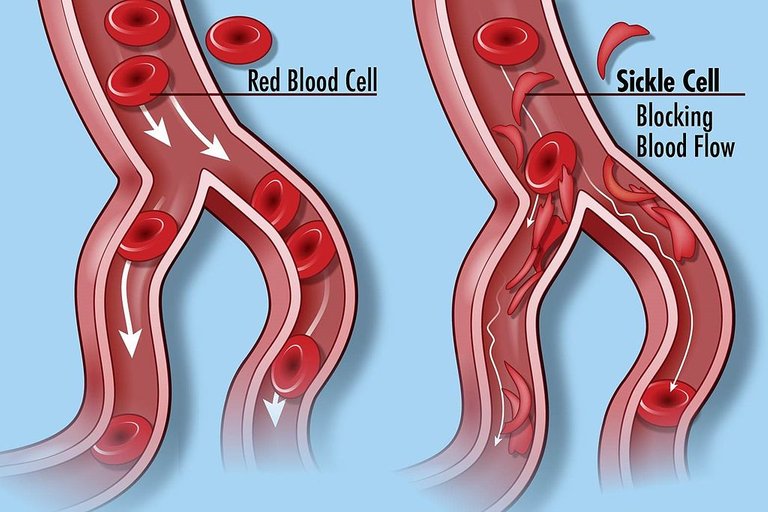Demystifying the 'abiku' and 'ogbanje' culture in Nigeria
Even though Nigeria as a country is made up of over 250 ethnic groups with close to 500 different languages, only 3 major tribes are recognized - the Yorubas, the Hausas, and the Igbos. While the culture of the Hausas remains largely conservative for religious reasons, the cultures of the two remaining major tribes have been largely dynamic. Many phenomena that used to be attributed to divinity or other spiritual causes are being demystified as advancement in knowledge evolves.

In the olden days, among the Yorubas and the Igbos, children that are birthed after experiencing several neonatal deaths are usually labeled 'abiku' and 'ogbanje' respectively. Both words mean the same thing - children that have been birthed and died several times. It was quite common for the parents of the ogbanjes and the abikus to seek 'spiritual' solutions to their problem. Wehn such parents are eventually able to give birth to a surviving child after a couple of unsurvivind ones, they give them names whose meanings clearly show that they are abikus/ogbanjes.
In my own tribe, the Yorubas, once names like Rotimi (meaning: stay with me), Malomo (meaning: do not go anymore), etc. pop up, you know that the parents whose child bears those names have been afflicked by repeated loss of children at tender ages. It was really a dark day back then until modernization and advancement in science gradually started throwing light into the dark days. A couple can be producing genetically unfit children that with short lives due to nature and nurture.
The sickle cell situation
The sickle cell is a genetic abnormality that often results in short life spans for victims, often depending on several factors; including the level of care they are exposed to. It is an abnormality characterized by blood cell disorder in which individuals do no have adequate healthy red blood cells to convey oxygen round the body.
The normal red blood cell is round and flexible enough to navigate its way through the various blood vessels in the human body, carrying oxygen along in the process. On the other hand, the abnormal red blood cells in the sickle cell patients are rigid and sickle shaped; a condition that makes it difficult for them to navigate their ways through blood vessels. Consequently, some of the abnormal cells get stucked in blood vessels, causing blockade or impaired blood flow in the process. The impaired blood flow causes pains and a variety of complications in victims of sickle cell disorder.
The rigid and sickle shaped red blood cells in sickle cell victims is caused by a mutation to a molecule on the surface of the red blood cell - the haemoglobin. The haemoglobin confers the ability to transport oxygen on the red blood cell. Lack of adequate medical attention usually leads to early deaths in sickle cell patients and the condition can be diagnosed at births through a blood genotype screening.

The genetics of the sickle cell
The abnormality known as sickle cell is heritable. That is, it can be passed from parents to their offspring. The allele for the trait is only deleterious in homozygous recessive condition. Heterozygous individuals, those with one normal allele and one sickle are referred to as carriers and while some sickle celled red blood exist in their system, they are not significant enough to cause them problems. Hence, carriers appear perfectly normal in appearance and, in actual fact, at more evolutionally advantageous position to resist some disease - e.g malaria.
While heterozygous individuals may appear normal, problem arise when such individuals produce offspring by themselves. Heterozygous individual producing kids with another another heterozygous individual leads to a chance of producing sick children with the characteristically short life spans. For example, assuming that normal allele is A and sickling allele is S, an AA individual is perfectly normal and free from the sickling trait, an AS individual is a carrier, while a SS individual is a sickler.
If an AS marries and produce kids with another AS:
The chance of producing phenotypically normal kids would be 3/4 (1/4 perfectly normal with 1/2 carrier) while the probability of producing sicklers would be 1/4. The phenomenon of chance in genetics means that there are no specific orders in which the kids would appear and the probability of giving birth to each category remains the same for each pregnancy. Hence, an AS vs AS couple might produce sickler children in succession, intermittently, or not even produce any sickler child at all provided that they stop producing kids after a number of times.
Thanks to science and technology
The advancement in science and technology has made it easier to diagnose abnormalities and the majority of health conditions that we use to attribute to divinity/spiritual causes are now being easily identified and treated. However, a permanent cure to sickle cell remains challenging with the majority of treatment focusing on just managing the disease. The only known permanent cure is stem cell transplant but this is not done often due to the high risk involved in the procedures.
So whenext a couple attribute the repeated death of their children to abiku/ogbanje issue, tell them to go for blood genotype screening; perhaps they are both AS and do not know it. Of course, there are other conditions that could warrant repeated deaths of kids from a couple beyong the sickle cell abnormality. Perhaps I will talk about them in my future posts.
Thank you all for reading.
Resources
- https://www.mayoclinic.org/diseases-conditions/sickle-cell-anemia/symptoms-causes/syc-20355876
- https://www.nhs.uk/conditions/sickle-cell-disease/treatment/
- https://en.wikipedia.org/wiki/Ogbanje
- https://guardian.ng/life/abiku-ogbanje-a-regenerative-spirit-or-traditional-brouhaha/
- https://www.tandfonline.com/doi/full/10.1080/13694670600621795?scroll=top&needAccess=true
Thank you for this discussion. I'm old enough to have parents who lost siblings because of unsophisticated medical technology in the United States. My parents were both born in the early years of the 20th century. The tragedy of these lost children remains with the families. So I understand the custom of "abiku' and 'ogbanje'". I'm glad medical technology is finally catching up in Nigeria now.
Your discussion of sickle cell anemia and its genetic course was also very interesting.
Thanks for your contribution to the STEMsocial community. Feel free to join us on discord to get to know the rest of us!
Please consider supporting our funding proposal, approving our witness (@stem.witness) or delegating to the @stemsocial account (for some ROI).
Please consider using the STEMsocial app app and including @stemsocial as a beneficiary to get a stronger support.